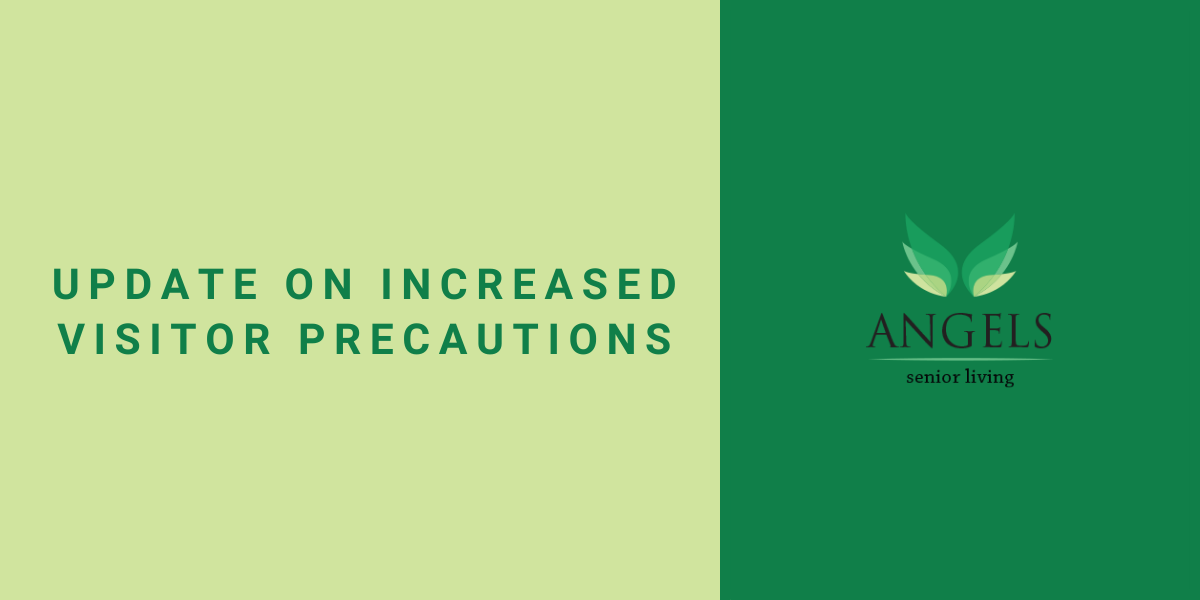Angels Senior Living is staying proactive and further restricting access to our communities in the wake of the COVID-19 outbreak. These measures are designed to ensure the safety of our residents and staff and reflect actions being taken across the country. Our communities continue to adhere to best practices recommended to us by the Centers for Disease Control, Florida Governor, and Florida Surgeon General, and we appreciate your support during this time.
At this time, all non-essential staff, families, vendors, and other visitors to our communities will be refused entry. We understand the stress this puts on families, especially during a situation like this. Please reach out to your community if you need any assistance with arrangements for FaceTime, Skype, Facebook Messenger, etc.
We will keep you regularly updated about the well-being of your loved ones and we appreciate you doing your part to eliminate the spread of COVID-19 by observing CDC-recommended practices, like social distancing, regular hand washing, sanitizing surfaces, and more.
Below, please find a list of resources on stopping the spread of COVID-19 and what Angels Senior Living is doing to protect our residents and their families, as well as a letter from Robert Bennett, our COO.
__________
COVID-19 Resources
Angels Senior Living Update on Increased Restrictions Regarding COVID-19
Angels Senior Living Implementing Visitation Restrictions Regarding COVID-19
Strategies to Prevent the Spread of Coronavirus (COVID-19)
What to do if you are sick with coronavirus disease 2019 (COVID-19)
__________
Letter from Robert Bennett Regarding Increased Visit Restrictions
Dear Residents, Family Members, and/or Guardians,
My team is constantly assessing our ever-changing environment around the recent COVID-19 outbreak. Currently, none of our residents have been diagnosed with COVID-19. However, we believe it’s in the interest of our residents, staff, and families to do more to protect our family. Effective immediately, our communities are unavailable to visit except for staff members and health care professionals. This includes enhanced precautions regarding vendor access.
Our elderly residents are the population most vulnerable to this virus and it is our responsibility to do everything we can to minimize the risks of someone getting it and the risks associated with it. We will be monitoring this policy day by day to ensure we’re doing everything we can to protect our residents.
We welcome phone calls, FaceTime, Skype, and other communication options between you and your loved one. In the meantime, we plan to keep your loved ones busy with plenty of fun and entertaining events, which you’ll be able to see at each community’s Facebook page.
If you have any questions, please reach out to your community Director for answers and support. Our corporate office is also a great resource at 813-886-2023. Thank you, and together we will beat this!
Robert S. Bennett
Chief Operating Officer
Angels Senior Living






